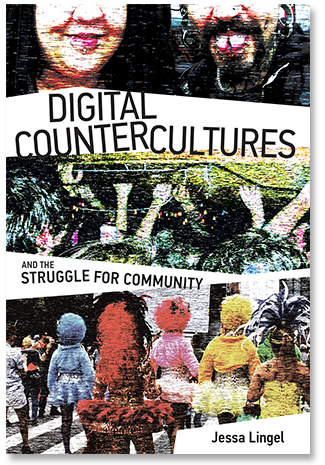Digital Countercultures and the Struggle for Community, book review: Alternatives to the dominant narrative


Digital Countercultures and the Struggle for Community • By Jessa Lingel • MIT Press • 178 pages • ISBN: 978-0-262-03621-4 • £24.95 / $30
Click back to the mid-1990s and you'll find dozens of books published about online community, beginning with the seminal work in the field, Howard Rheingold's 1993 study, The Virtual Community (which is available to read online for free). Rheingold, and many of the authors who followed him, began with San Francisco's The WELL, which is also still with us after all these years. Many of these books functioned as travel guides, offering both enticements to join the author in cyberspace (as it then was known) and a fantasy vacation for those who aspired never to go there.
It was in that period of the internet's development, relates Jessa Lingel in Digital Countercultures and the Struggle for Community, that Body Modification Ezine set up its IAM website (back when it was still written 'Web site'). IAM eventually grew to include an active community forum, a wiki, a shop, and a user-generated library of images and video. Two things happened. First, body modifications such as piercings and scarification began moving into the mainstream -- 'mainstream creep', as Lingel calls it -- so the community's boundaries began to blur. Second, in about 2011 the site's owners responded to various complaints and redesigned the site to be, among other things, more mobile-friendly. And then the community drifted to Facebook without apparently minding that it had lost its sovereignty.
Basement gigs and drag queens
Lingel recounts this story as the first of three case studies of online countercultural communities. The second is the basement music community in New Brunswick, New Jersey, which had bands playing quasi-legally in basements around town, insulated with mattresses and free Priority Mail boxes to prevent enraged neighbours from calling the police. Concert organisers faced the conundrum of needing to keep private the information about where the concerts were, but not so secret that attendees couldn't find out where to go. Lingel focuses on a newcomer's disruption of the community's strategies for controlling the flow of information by seeking to create a website listing events.
The third is a Brooklyn-based community of drag queens, who used Facebook for both personal socialising and promoting their stage acts. This community sought to retain their 'alterity' while working within the constraints imposed by Facebook -- the 'Wal-Mart of cyberspace'. Some created workarounds: one, for example, stuck on Facebook's 'real names' policy requiring English-language participants to provide both a first and a last name, claimed to be from Indonesia, where single-word names are common enough for Facebook to support them. The community eventually won a change of policy for a couple of other reasons: first, unlike victims of domestic violence or sexual abuse, they didn't mind being visible protesters; and second, they acted collectively.
These stories are important, Lingel writes, because we need to force alternatives to today's dominant narrative about the internet -- the one promulgated by Silicon Valley. When drag queens struggle with Facebook's 'real names' policy, does the answer have to be, 'Well, they shouldn't use Facebook?' If the internet is to fulfil the access-for-all promise it began with, that binary non-choice can't be all there is.
Read more book reviews